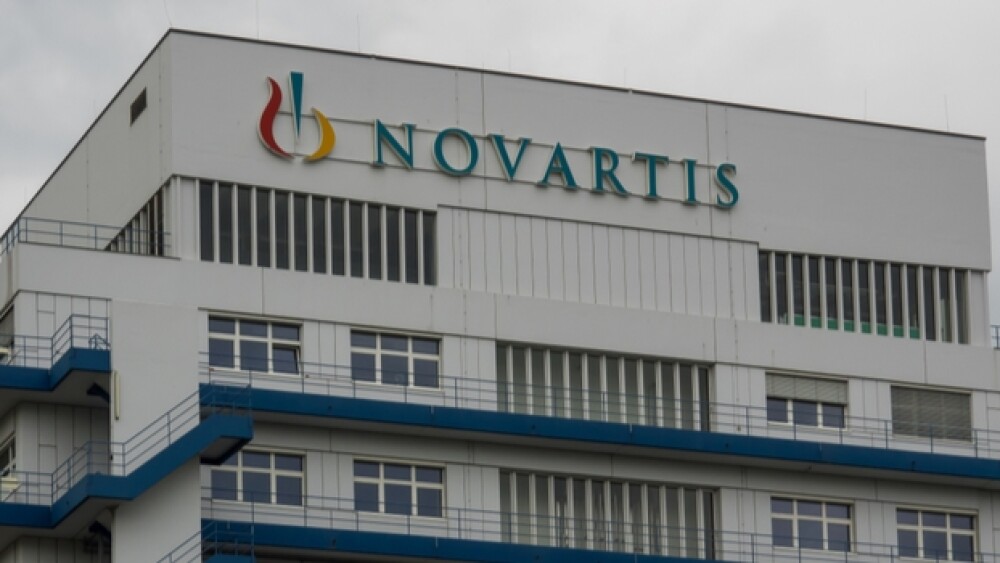In its annual report, Novartis said it has stopped working on the years-long project and will record a $442 million impairment charge as a result.
photobyphm / Shutterstock
Swiss pharma giant Novartis is writing off its program to develop a generic copy of GlaxoSmithKline’s blockbuster inhaler, Advair. In its annual report, Novartis said it has stopped working on the years-long project and will record a $442 million impairment charge as a result.
The company quietly disclosed the announcement two years after the U.S. Food and Drug Administration rejected the generic version of Advair brought forth by subsidiary Sandoz. Novartis’ announcement also comes about a year after Mylan won approval for its own generic version of Advair, the first such approval in the United States. Mylan’s approval came one year after the FDA rejected its Advair generic due to “minor deficiencies.” With the Mylan generic on the market already and Advair sales sliding for GSK due, in part to the generic as well as the introduction of other medications like Breo Elipta, Novartis opted to discontinue its program.
Despite the writing off of the Advair generic, 2019 was a fairly good year for Novartis. The company saw five New Molecular Entity approvals, each with the chance to become blockbusters. Those drugs include Piqray, the first drug treatment for breast cancer with a PIKC3A mutation, which was approved in May 2019. In May, Novartis won approval for Mayzent, the first oral drug to treat active secondary progressive multiple sclerosis. Zolgensma, the first gene therapy approved to treat spinal muscular atrophy. That drug was approved with a $2.1 million price tag. The approval was later rocked by a data scandal. In October, Novartis’ Beovu was approved for the treatment of wet age-related macular degeneration (AMD), after it stood up to Regeneron’s Eylea during clinical trials. The company also won approval for Adakveo, next-generation treatments for sickle cell disease. Specifically, the drug was approved to decrease the frequency of vaso-occlusive crises in sickle cell disease patients. Additionally, Novartis submitted regulatory filings for several major drugs, including inclisiran, and the company had more than 30 readouts supporting submissions or enabling transition to Phase III, the company said in its financial report.
“Our pipeline remains rich including many 2020 catalysts and we expect to maintain innovation momentum,” the company said.
Novartis Chief Executive Officer Vas Narasimhan called 2019 an exceptional year.
“Strong sales growth drove double-digit increases in core operating income and free cash flow. Significant margin expansion puts us on track to reach mid to high 30s core margin for Innovative Medicines in the mid-term. We launched an unprecedented five new molecular entities in 2019 and advanced a breadth of early programs in our pipeline that address significant unmet needs. Looking ahead, we expect to sustain our long-term growth and margin expansion driven by our in market growth drivers and the 15 ongoing or upcoming major launches, while advancing our rich pipeline,” Narasimhan said in a statement.
Net sales during the fourth quarter were $12.4 billion, an increase of 8%. That was driven primarily by sales of Entresto, Zolgensma, Cosentyx and Kisqali. Entresto generated $518 million in sales, up 65% and the SMA treatment earned $186 million in the quarter. Cosentyx generated $965 million, up 21% and Kisqali earned $155 million, a 166% growth, the company said.
Net sales for Sandoz were $2.5 billion. Novartis said it continues to expect the previously-announced divestment of the Sandoz US oral solids and dermatology portfolio to be completed in the first quarter of 2020. In 2018, Aurobindo plunked down $1.6 billion to acquire that section of Novartis’ generics business.





